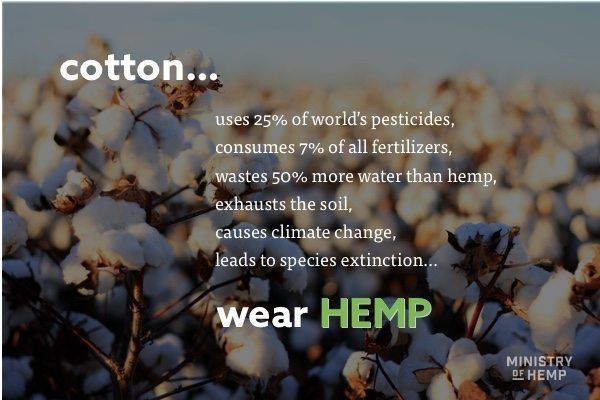[ad_1]
Cotton has become the de facto source for materials ranging from apparel, bags, sheets, towels, and pretty much most other household fabric. Approximately half of all textiles are made of cotton.
Yet, we don’t hear much about the impact cotton makes to our environment.

Here are some quick facts:
- Cotton is the largest user of water among all agricultural commodities
- It can take 2,700 liters to produce the cotton needed to make a single t-shirt
- Cotton cultivation severely degrades soil quality. In the past 70 years, cotton production has depleted and degraded the soil in many areas
- Cotton farming uses 25% of the world’s pesticides and consumes 7% of all fertilizers
- Runoff of pesticides, fertilizers, and minerals from cotton fields contaminates rivers, lakes, wetlands, and underground aquifers
- These pollutants affect biodiversity and have caused species extinction throughout the world
Considering this reality,the World Wild Life contends that current cotton production methods are environmentally unsustainable — ultimately undermining the industry’s ability to maintain future production.
So what can we do about it?
It’s unlikely that we’ll stop wearing cotton shirts tomorrow. We can’t just start boycotting cotton products – what would we wear if it wasn’t for cotton? Yet, we can start building the foundation that could provide us with an alternative to cotton. Yes, we probably won’t ever be able to “get rid of” cotton, but we can at least reduce its production level to a sustainable amount. And what better alternative is there than hemp.
“I believe that hemp is going to be the fiber of choice in both the home furnishing and fashion industries” – Calvin Klein
Hemp offers us a viable, affordable, and sustainable option to moving away from cotton:
- Hemp uses 50% less water than cotton to produce
- It does not require any agrochemicals such as pesticides or fertilizers
- Hemp actually helps improve soil condition and stabilization thanks to its long, fast-growing taproots
- Hemp’s wide climatic adaptation and fast-growing foot-long roots allow it to thrive in drought-damaged soil
- Hemp offers 8X the tensile strength and 4X the durability of cotton
When more consumers, textile manufacturers, and apparel brands become aware of hemp, it will become a viable alternative to cotton. Many pioneers of the clothing industry have already predicted this, including Calvin Klein saying, “I believe that hemp is going to be the fiber of choice in both the home furnishing and fashion industries”.
[ad_2]
Source link
Thank you for your sharing. I am worried that I lack creative ideas. It is your article that makes me full of hope. Thank you. But, I have a question, can you help me?